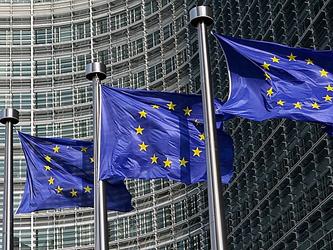X marks the spot: One year on from Twitter’s takeover

What a difference a year makes. On October 27th 2022, Elon Musk finally completed a long-running $44bn takeover of Twitter. The aftermath of the acquisition saw big changes, with several executives departing, including chief executive Parag Agrawal, and significant redundancies, particularly in the moderation and the media departments.
The past year has seen a litany of changes, notwithstanding the rebrand from Twitter to ‘X’. On launching his acquisition, Musk had spoken about his desire to add new features, make Twitter’s algorithms open source, remove spam accounts and promote free speech. Changes have included a subscription ‘blue tick’ service, restrictions on access to content for non-subscribers and an increasingly loose approach to moderating content on the platform. Recently, Musk even floated the idea of putting Twitter behind a paywall, ostensibly to protect its data.
But what have those changes meant for research and advertising on the platform? In terms of advertising, there has been a significant impact, with many advertisers citing concerns over moderation of content as reasons to suspend or withdraw spend. This has caused a loss of status for X among marketers, according to the recent Media Reactions 2023 report by Kantar. It found that that X does not feature in marketers’ top five preferred advertising platforms, leading to a net 14% of marketers saying they would reduce their advertising investment on the platform in 2024. There was a decline in perceptions of innovation at X ( 16% in 2023 compared with 28% in 2021 ) and trustworthiness (now 7% from 11% in 2021 ), according to the report.
Has the takeover of X hit market research’s use of the platform? Jeremy Hollow, founder and chief executive at Listen + Learn Research, says that the swirl of negative headlines around X has not yet filtered through to the day-to-day realities of using it for research. “I think the public perception of X is different to the research reality of X. If we think about how the media talks about X, all of its focus is on the political elements, the binary polarised anger of it, the moderation of it, the celebrity of it.
“If you think about tweets as a corpus of data, you have these polarised elements becoming lost in a sea of data. When we cut across that data for a piece of research, that data set hasn’t seen a huge shift. If you are researching consumer and market behaviour, we haven’t seen too much of a change. We haven’t seen the data become rubbish or dry up.”
Gonca Bubani, global thought leadership director – media at Kantar, says: “It hasn’t had a massive impact on the research industry directly. The changes indirectly affect us, as if revenues decline for X, then that means more advertisers are not going to go there, and we won’t measure and include X in media plans as much.”
Reading the room
The response from users will be the biggest impact on whether X remains a worthwhile approach for insight teams. Kantar’s Media Reaction report found that despite the significant negative impact on marketers’ perceptions of the platform, X was still retaining prior levels of usage from and brand equity among consumers. “It is not a surprise that if ad revenue is declining, consumers are not very unhappy about that,” explains Bubani, noting that most social media users are deterred by greater numbers of adverts.
Kantar Insights’ brand tracking tool, BrandNow, found that UK consumer perception towards X has remained broadly stable since December 2022, with the proportion of consumers who say they trust the brand currently at 13.4%, marginally up from 13% in December 2022. Negative buzz around the X brand has decreased from 33.5% at the start of December 2022 to around 19.7% on 24th October 2023. In terms of the average user profile, Kantar Media TGI found that X users were more likely to be Gen Z, in school or single than the average Instagram user, and significantly more so than Facebook.
Despite increased pessimism over the direction of the platform in Europe and the US, in the developing world, where disinformation can, in some instances, be more common, X still retains a strong user base. “Twitter is very important and is charged with a different cultural code than in Europe or the US. Iraqis, for example, are extremely direct on Twitter,” says Daniel Fazekas, founder and chief executive at social listening consultancy Bakamo. “It has been very loud and political for quite some time.”
He adds that X is still very important for real-time reaction to major emergencies or news events, and that even countries that ban X, such as Iran, have official accounts and use it to disseminate their message.
However, that does not mean the future is rosy for X. There have been rumours of increased costs for getting hold of Twitter’s data, according to Fazekas. “As market researchers, we obviously have paid APIs – this is probably the main income Twitter has, to sell this data,” he says. “I know there has been wrangling and price hikes.”
Hollow adds that “from a practical point of view, it has got more expensive” to use X for research. He questions whether an “availability bias” exists towards data from X, with a relative lack of transparency over algorithms and greater privacy controls on platforms such as TikTok and Instagram making data hard to acquire from its rivals. “Twitter data is easy to get hold of and has some well-known and well understood metadata that goes with it,” he explains. “It is text data, so you can do something with it.”
For companies that are reliant on X for social listening or other forms of research, now might be the time to branch out. “As a researcher, you need to understand all of those different social media spaces and the nature of the conversations, and the dynamics of how intent, influence and opinions are formed within those spaces,” argues Hollow.
It is TikTok that might pose the biggest concern for X in the long run, says Fazekas. “Most users are not affected by the whole theatre around what Elon Musk is trying to do. We see Twitter being very important still in our research. It is one of the many sources – but if you were to ask me which one is the most important currently, I would say TikTok. TikTok is coming up and genuinely taking away market share in terms of relevance and depth of content, and so is Reddit – Reddit can be underestimated.
“It was never enough to look just at Twitter. Not five years ago or 10 years ago – it was never sufficient as you always got a slice of the conversation. That is probably even more true today, as Twitter is losing some of its relevance. You can’t see that in the numbers – we know this from discourse. We have not seen numbers dropping, but we are seeing alternative platforms emerging very quickly.”

We hope you enjoyed this article.
Research Live is published by MRS.
The Market Research Society (MRS) exists to promote and protect the research sector, showcasing how research delivers impact for businesses and government.
Members of MRS enjoy many benefits including tailoured policy guidance, discounts on training and conferences, and access to member-only content.
For example, there's an archive of winning case studies from over a decade of MRS Awards.
Find out more about the benefits of joining MRS here.














0 Comments